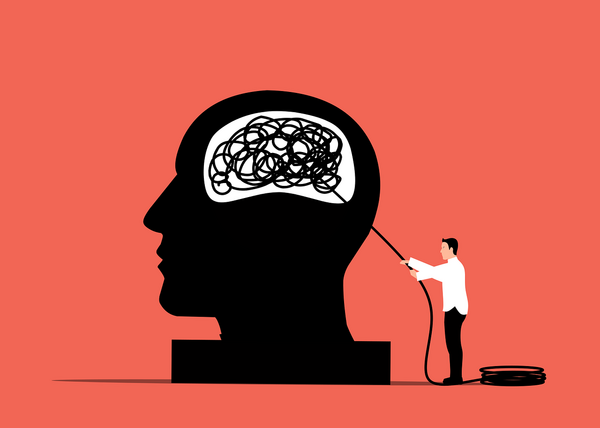
How Seeking Help for Addiction Can Change Your Life
Addiction can take hold quietly, often beginning as a coping mechanism or social habit before evolving into something that feels impossible to escape. Whether it involves alcohol, drugs, or behavioral patterns like gambling, addiction impacts physical health and emotional stability, relationships, and personal goals.
The road to recovery might seem daunting, but seeking help is one of the most powerful decisions a person can make. It's a step toward regaining control, rebuilding trust, and rediscovering purpose. Recovery isn't just about breaking free from substance dependence, it's about reclaiming your identity, health, and hope for a better future.
Understanding the Importance of Professional Support
Addiction thrives in silence, and many people hesitate to seek help because of shame, fear, or uncertainty. But professional guidance offers a structured path toward healing. Therapists, medical experts, and recovery specialists understand that addiction is a disease, not a personal failure. With the right support, individuals can address both the physical and emotional roots of their struggles.
Accessing comprehensive treatment programs makes a profound difference in recovery outcomes. Specialized centers provide a blend of medical detox, counseling, and aftercare planning to ensure lasting success. As evident at https://thegroverecovery.com/, individuals can find compassionate, evidence-based programs tailored to their unique needs. These resources empower people to start recovery with confidence, knowing they are not alone in their journey.
Breaking the Cycle of Dependence
One of the most transformative aspects of seeking help for addiction is the ability to break free from the destructive cycles that accompany it. Addiction creates physical dependency and alters brain chemistry, making it difficult to stop without medical support. It perpetuates emotional and behavioral patterns that reinforce guilt, secrecy, and isolation.
Professional recovery programs focus on disrupting these cycles safely and effectively. Through detoxification, medical supervision, and therapy, individuals begin to restore balance to both mind and body. These early stages are critical because they lay the groundwork for long-term recovery, teaching people how to manage cravings, triggers, and stress without turning to substances.
Rebuilding Relationships and Restoring Trust
Addiction often strains or severs relationships with loved ones. The secrecy and behavioral changes that accompany substance dependence can lead to misunderstandings, disappointment, and emotional distance. Seeking help allows individuals to confront these issues directly and begin the healing process, not just for themselves, but for those around them.
Recovery programs often include family therapy sessions designed to repair communication and rebuild trust. These conversations provide a safe space for honesty, empathy, and forgiveness. By addressing past hurt and establishing boundaries, both individuals and their families can create healthier, more supportive dynamics.
Rediscovering Self-Worth and Purpose
Addiction often erodes self-esteem, leaving individuals feeling powerless or undeserving of happiness. Seeking help can change that narrative entirely. Through therapy, support groups, and self-reflection, recovery encourages people to reconnect with their inner strength and rediscover who they are beyond their addiction.
Counselors help clients identify underlying issues that may have contributed to substance use, such as trauma, stress, or depression. By addressing these root causes, individuals begin to heal on a deeper level. This process fosters self-awareness and helps them recognize their capacity for change.
As confidence grows, so does a renewed sense of purpose. Many people in recovery rediscover passions or talents that had been overshadowed by addiction. Whether it's through creative pursuits, volunteering, or education, finding new meaning in life becomes a cornerstone of long-term sobriety.
Building a Healthier Future
Physical and mental health are often severely affected by addiction. Substance abuse can weaken the immune system, impair cognitive function, and contribute to anxiety or depression. Seeking help allows the body and mind to heal simultaneously.
Recovery programs prioritize holistic wellness, balancing medical treatment with fitness, nutrition, and stress management. Exercise and balanced eating restore strength, while therapy and mindfulness techniques promote emotional stability. Individuals notice improved sleep, energy levels, and mental clarity.
Beyond physical recovery, people develop healthier routines and boundaries. Prioritizing self-care becomes a daily practice rather than an afterthought. This transformation leads to greater productivity, focus, and emotional well-being, allowing individuals to thrive in both personal and professional aspects of life.
Inspiring Others Through Recovery
Perhaps one of the most powerful outcomes of seeking help for addiction is the ability to inspire others. Every person who chooses recovery becomes a living testament to the possibility of change. Sharing experiences, volunteering at treatment centers, or supporting peers in recovery communities can make a lasting impact.
By speaking openly about their journey, individuals help dismantle the stigma surrounding addiction. They show others that recovery is not only achievable but life-changing. This sense of purpose often reinforces their own sobriety, as giving back creates fulfillment and accountability.
Recovery is not about perfection, it's about progress. Each day spent committed to healing represents a victory worth celebrating. With the right support and determination, anyone can reclaim their life, rediscover joy, and build a future filled with clarity, connection, and renewed purpose.